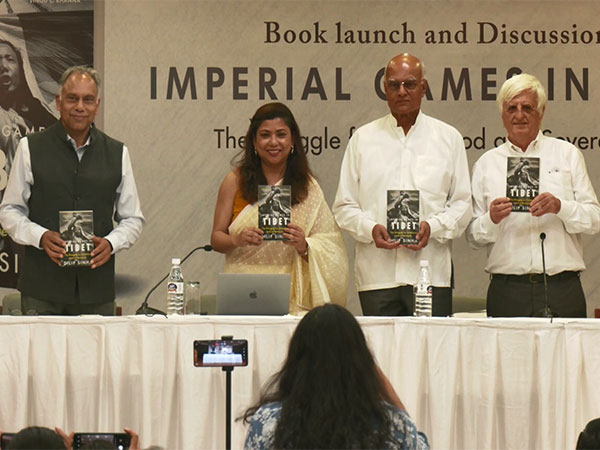China's Grip on Tibet: Struggles and Sovereignty Explored
Dilip Sinha's book 'Imperial Games in Tibet: The Struggle for Statehood and Sovereignty' discusses China's inability to assimilate Tibet, underscoring the region's geopolitical significance. The book's launch saw discussions with prominent figures, highlighting Tibet's history, China's tactics, and India's stance.

- Country:
- India
China has not successfully assimilated or absorbed Tibet, nor has it won over the hearts and minds of the Tibetan people, former Indian ambassador Dilip Sinha remarked at the launch of his book 'Imperial Games in Tibet: The Struggle for Statehood and Sovereignty'. The book was unveiled at the India International Centre in New Delhi on Tuesday.
Sinha's work underscores Tibet's role as a battleground for global geopolitical ambitions and speculates on the future of the region's pursuit of statehood. He highlighted China's reliance on force to control Tibet, a method he argues is rejected by the Tibetan populace, leading to ongoing resistance against Chinese rule.
The event featured a panel discussion including former Foreign Secretary Shivshankar Menon and Tibetologist Claude Arpi. They explored Tibet's complex history, its geopolitical conflicts, the influence of Tibetan Buddhism, and China's annexation in 1950. Menon praised the book for its honest recounting of Tibet's past and its impact on India, while Arpi criticized China's involvement in the Dalai Lama's reincarnation process, contrasting it with India's non-interventionist stance.
(With inputs from agencies.)
ALSO READ
Russian Rouble Hits 10-Month Low Amid Geopolitical Tensions
Russian Rouble Hits 10-Month Low Amid Geopolitical Tensions
Puducherry Assembly Pushes for Statehood with Unanimous Resolution
India's Exports Shrink Amid Rising Imports and Geopolitical Tensions
Puducherry Assembly's Unanimous Demand for Full Statehood










